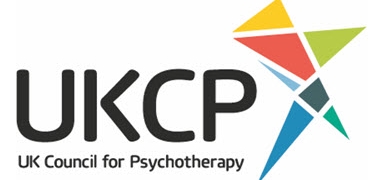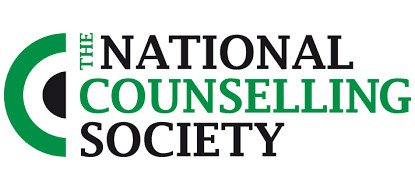How shame and addiction are linked
/Shame and addiction are intrinsically linked, and it’s rare to see one without the other. This article, written by Palmeira Practice counsellor Leon Standing, examines how shame and addiction go hand-in-hand with one another.
Shame and addiction are like Siamese twins, as one rarely exists without the other. You will not find an addict without shame – or a shameful person without an addiction as both are attached at the heart, sharing the same blood that keeps them alive. Both exist behind walls of denial, growing like a tumour, sucking life out of us, and both are destined to the same deadly spiral.
Shame is an “attack on the ‘self”, but shame’s most important task is ‘not to be exposed’. Most people who are “shamed-based” sometimes don’t even know it. Shame is slippery, and you may not even recognise when you began to feel this way. Shame is most often disguised as what it is ‘not’: the overwhelming need to control, depression, anxiety, panic, irrational white rage, the obsession to use, numbness, and the need to run or hide away. We will use whatever is available to us to prevent falling into the bottomless abyss of shame.
Most of us have experienced shame
As human-beings: making sense of our feelings is not an easy thing to do, and is not something that we are generally taught in childhood. Most of us have felt the pain of shame at some point in life. Some of us may have been dishonest about our feelings, and we feared that we would be found out, or others would know too much about us. Hurtful and painful feelings will often come to the surface in our lives, and when we hurt, we feel bad. Words like ‘sad’ or ‘unhappy’ can describe these feelings, but sometimes we not only ‘feel’ bad, we believe we ‘are’ bad. We not only hurt but we also believe something is wrong with the very core of who we are. We feel something is lacking – we feel inadequate, worthless, and empty. We feel wounded.
Shame begins with feeling vulnerable, out of control, overwhelmed, and threatened. It can be crippling as we suddenly feel exposed, and feel the threat of losing something or someone. When we are exposed against our will and our secrets revealed, even before ourselves, we feel shame. It can begin with a belief we formulated without even knowing it. Yet beliefs are not necessarily based on reality, but can be very real for us personally.
Therefore, we work really hard at not being found out. We build rigid perfectionistic defences to make sure we are never found out, and never exposed. Can you imagine what that does to a relationship? There can be no intimacy when we will not reveal, declare, and commit ourselves. This is the result of shame. Eventually, our partner may leave frustrated and confused, and we will have what we so desperately tried to protect ourselves from: Rejection and abandonment!
Shame can lead us to building walls between us and people we care about and love in order to hide aspects of our personality and who we are. Those walls, in turn, put strain upon relationships.
Intimacy requires that we allows ourselves to be vulnerable and out of control. An addict can’t bare being out of control as, after all we drank or used to gain control over our feelings. Yet we cannot accept love without giving up control. In order to accept love we must sit still, and be quiet. We must open our hearts to someone else, who accepts us, and all our humanness.
Facing ourselves, our own emptiness, our own humanness, can be terrifying. Yet for those of us who have fought with shame, we fear we will never survive the battle.
So, where does shame come from?
For most of us, shame has its origins in our childhood. Addiction and emotional problems run in families, and many of us were brought up in dysfunctional or unhealthy families where emotional and even physical needs were neglected.
When parents are constantly depressed or overcome with an addiction, they are often unable to meet the emotional needs of their children. When children do not get their emotional needs met, they often feel shame. This grows when children and adolescents are: abused, criticized and undermined, feel abandoned or neglected, and when they are not given adequate conditions to grow, develop, and to value themselves as worthwhile people.
Parental relationships have great weight in how a person develops, including whether they’ll be overcome by shame and addiction in adulthood. Good parenting instils a sense of worth in children, whilst bad parenting does not. That sense of worthlessness becomes a part of their character.
These people often mature with deep-rooted beliefs of inadequacy and worthlessness, and fear rejection and abandonment. They learn to be vigilant around others in case someone else discovers their feelings of inadequacy. They may feel a need to hide themselves, to keep secrets, to resist discovery, to avoid making mistakes. Mistakes are seen as the ultimate sign of worthlessness. A mistake is not viewed as a single event, but is generalised to define the entire self:
““I am a mistake. My shame means that I not only feel bad, but that I believe I am a bad, inadequate, and flawed person.” (Sheehan, 2002, P.3)”
A nurturing and caring family environment naturally provides for each member’s emotional needs. Children are accepted for who they are and they are cared for and respected. The individuality of family members is maintained. Parents are free to be adults and children are free to be children.
The link between shame and addiction
Shame can also been learnt later in life. Those of us who struggle with chemical addictions or compulsive behaviours can despair over our emotional issues as the addictive cycle develops and escalates. This overtime defeats our attempts to lead a more productive, and healthier life. Robbed of our feelings of hope, this self-defeating cycle only further highlights our behavioural problems and amplifies our feelings of worthlessness.
Shame is always a concern for people recovering from addictions and emotional issues. If we have unidentified feelings of shame that are not dealt with, we risk relapse. Therefore, it is important that we recognise and ease our shame as part of our recovery process.
Recovery from shame and addiction
Recovery is a route to crafting a more fulfilling and meaningful life that often involves fewer emotional sufferings and freedom from addictive behaviour. Also, feelings of shame can be healed!
Recovery from shame
Since shame is learned, it can be unlearned and changed with more positive thoughts, feelings, attitudes, and behaviours. We can reduce our feelings of shame by understanding their root causes. We begin by acknowledging that we feel shame and share it. We challenge negative beliefs, practice positive affirmations, and actively work towards changing shame-related behaviours.
Children and adolescents, by the nature of their youth haven’t gained the skills, knowledge, and emotional stability to understand the complexity of their attitudes and feelings. Therefore, we aren’t responsible for how we were treated in the past or how we learned early on to feel about ourselves. In essence, we are not responsible for our childhood. By nature, childhood is characterised by powerlessness.
Recovery from addiction
The same is true for addiction and compulsive behaviours. Some of us experienced obsessions and compulsive behaviours that have invaded every part of our personality: others have experienced loss of control over certain behaviours such as drug use or gambling.
All of us have faced and felt the continued defeat and destruction from our inability to change our behaviour. Firm resolve and willpower alone have usually resulted in failure. Although we wanted the pain of our self-defeating behaviour to stop, we were powerless. Like children, we were powerless in our attempts to control the intricacies of our feelings, attitudes, and addictive behaviour.
It is only by admitting and accepting our powerlessness as adults that we feel empowered to recover. As recovering people, we become more aware of our feelings and can make conscious choices about what we think and how we behave.
Shame is perpetuated by our belief systems. No matter when, where, or how we learned them, these shame based attitudes are now our own. The critical voice within us who represents our perfectionistic strivings to control can be challenged, diminished, and eventually destroyed! The critic’s rule is not absolute and can be diffused with persistent self-talk grounded in logic and reason.
Recovery from shame is recovery from addiction. It is freedom from pain, and freedom from the walls that keep us from reaching our full potential, living our lives to the fullest, and loving others to the limits of our hearts.
There is hope, and we should never give up on hope.
References
Shame (1989) [DVD] Directed by Claudia Black, USA: MAC Publishing
Sheehan, T. (2002) ‘REBT Shame Workbook’, Center City: Hazelden
Stephanie, A. (1986) ‘Shame’, Center City: Hazelden
This article was written by Palmeira Practice counsellor Leon Standing. To speak to Leon about working with issues around shame and addiction, book in and introductory consultation session.






